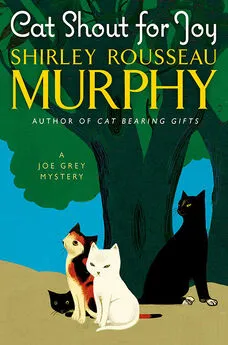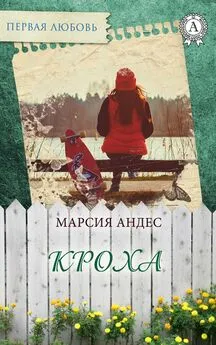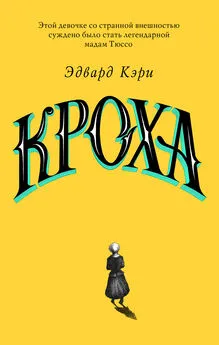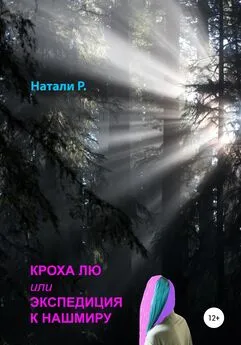Кроха - Dedication
- Название:Dedication
- Автор:
- Жанр:
- Издательство:неизвестно
- Год:неизвестен
- ISBN:нет данных
- Рейтинг:
- Избранное:Добавить в избранное
-
Отзывы:
-
Ваша оценка:
Кроха - Dedication краткое содержание
Dedication - читать онлайн бесплатно полную версию (весь текст целиком)
Интервал:
Закладка:
25
When Joe had left the station, he’d had every intention of tossing the Bleaks’ apartment for evidence; surveillance was not enough. Racing the length of the courthouse roof, he hit the peaks above Jane’s Knitting, Matelle Bakery, and three upscale clothing stores. On the roof of a small motel he galloped past second-floor windows, surprising a little child looking out. From a patio café across the street, the smell of frying onions followed him as he headed a block north to the tall, two-story frame on the corner, the butter-yellow house named Daffodil Walk. There were no daffodils in the scruffy fenced yard.
The small rental cottage at the back might once have been brown. It was not fenced, as was the big house. A narrow, cracked drive led from the side street to the cottage’s attached one-car garage that jutted out in front. The Bleaks’ white van stood to the right of the drive on a patch of grass, handy to the front steps. Oak trees shaded both yards.
Dropping into a tangle of twisted branches, Joe made his way to the back. In the yard of the big house a heavy-shouldered Rottweiler stopped chewing on a fallen branch and stared up at him, his yellow eyes small and mean, his growl a low rumble. He glared unblinking as Joe slipped over the hip of the cottage roof out of sight. The beast knew he was still there, could surely smell him; but, not seeing the invading feline, he might be less likely to bark and draw attention.
Stepping stones led from the street along the drive to the front door of the cottage. Over in the fenced yard the dog rumbled once more, leaped at the closed gate, then returned to maul his oak branch. Joe could see a kennel at the back near the big house.
Padding on across the cottage’s ragged shingles, he backed down the last gnarled tree into the sweet smell of mock orange bushes shedding their wilted flowers. A temporary wooden ramp led up beside the three steps to the small porch. The front door stood open.
The van’s passenger door was wide open, too, revealing Tekla’s black-clad backside where she leaned in. Her posterior and thighs looked narrow as a boy’s. She backed out, carrying a crookedly folded blanket, a six-pack of bottled water, and a handful of road maps. Before she could turn toward the house Joe was inside and under the first shelter he came to: a padded bench against a short wall that faced the front door. Diving under, he glimpsed the small, crowded living room beyond.
To the left of the front door in a narrow alcove hung two Windbreakers and a yellow raincoat on wooden hooks. The front door itself was flanked by tall panes on either side, swirly glass so you could see only a person’s shape and what color he was wearing. The glass panes were the perfect arrangement for a thief. Only a moment to break the window, reach through and turn the key; unless, of course, one had had the foresight to remove the key.
To the right of the front door a narrower, closed door probably led to the garage, Joe could smell the oil-rubber-tire-mildew scent common to most village garages. To the right of that door was the kitchen alcove with a small breakfast table. The cramped living room behind him held a faded couch, a fake leather easy chair, a TV on a rolling stand, a depressing tableau for the desperate renter.
Two hard-sided suitcases stood beneath the hanging coats beside the front door. From the shadows beneath the bench, he watched Tekla lay the blanket on the larger one, set the maps and the bottled water on the blanket. As she shut the front door the hinge gave a little squeak. Her black jogging shoes were inches from his nose as she headed down a short hall to his left past a tiny bedroom to a larger one at the back. He followed her, praying she wouldn’t glance around. At the sound of Sam’s muffled voice from the back room, Joe froze. “You want all these clothes?” He didn’t sound happy.
“Just the front ones,” Tekla snapped. She moved on to the larger bedroom, Joe following; even this room was minuscule. Just space for a double bed partly blocking a glass door with the draperies drawn, a dresser, a small armoire that would hold a TV. Tekla entered the small walk-in closet, its door standing wide, Sam’s wheelchair parked beside it. Joe waited in the shadows, watching.
Inside the closet Sam was standing up, supporting himself by gripping the overhead rod. As Tekla lifted off the first few hangers, Joe slipped across behind them to the unmade bed and underneath to the far side.
Rearing up between bed and draperies, he considered the suitcase that lay open atop the tangled sheets and blankets. He was poised to disappear again if they turned. The suitcase was packed with Spandex pants and shirts, most of them black. On top of a folded black tank top lay a handgun, a dark automatic. The clip was in, and he assumed that was loaded. Another clip lay beside it, and two boxes of ammunition marked .32 caliber brass jacketed hollow point, a hundred rounds each. The same caliber bullets as the one that killed Ben.
If he could get out of here with the gun, that would be all ballistics needed—compare these riflings to the bullet that murdered Ben.
Why had he been so sure he’d find a gun? The right gun? And, what am I doing shut in this house within grabbing distance of these people? They’d seen him at the remodel; they knew him, if they’d paid any attention. Whatever, they’d have to wonder what a cat was doing in here.
So they wonder. So, what are they going to think? That I’m tossing the place?
But even so, Sam and Tekla gave him the creeps. In the closet, Sam was saying, “ . . . was a stupid thing to do, a cockamamie idea. You only set the cops onto us.”
“They were already onto us, poking around like they were.”
“That’s your imagination.”
“That boy was right there in the house that morning, he could have seen everything.”
“Then why didn’t he tell the cops?”
“I don’t know, Sam. But I don’t trust him. And it was too good an opportunity to miss, you falling like that on the edge of the walk, wrenching your arm and crying out. There was no one around to say you weren’t pushed and that it wasn’t the boy did it. I thought he was alone this morning, we saw the contractor and that red-bearded carpenter in the village, I thought he’d be alone in the remodel and no one to say where he really was . . . Put him in as bad a light as possible in case he did tell what he saw that morning. Maybe he saw nothing, maybe he heard the shot, but make a liar of him right off, before he started talking. It was just too good not to say it was him. How was I to know he was with the damn cops?”
“You blew it, Tekla. And you made me lie for you. Again,” he said darkly.
“I never made you lie for me. You could have—”
Sam laughed, a bitter, small sound. “What was I supposed to do? Call you a liar, in front of the cops?
“As it is,” he said, easing out of the closet and into his wheelchair, “they’re suspicious now, all right. Hurry it up, let’s get moving. They might have already put a watch on this place.”
He was silent a moment, getting settled properly in the wheelchair. “I want out, Tekla. I want out of this now, I want done with this even if Herbert was—is—my son.”
As Sam turned the chair to wheel toward the bed, Joe slid to the floor and behind the draperies. Looking out through the small space where the two drapes met, he watched Tekla turn to the suitcase carrying a plastic grocery bag. “And what about the house?” Sam was saying. “All that work—and money.”
“Have we ever worried about money? I have my ways. When we get where we’re going, we contact the Realtor, sell the house in the name of Bleak.” She turned to look at him. “There was a good chance no one would ever find out, that we could have stayed right here, live rich in this village for a while. Rub elbows with the movie stars,” she said, laughing.
“It didn’t work out, did it, Tekla?”
“No matter. Everything’s set up for the sale, escrow and bank accounts in the Bleak name, fix it like we always do. Sell the place from a distance and move on.” Reaching deep in the suitcase beneath the folded black spandex, she pulled out four rust-colored folders, the kind of heavy envelopes that a bank might use. Fanning them out, she chose one. “This will do.”
Putting the other three back beneath the clothes, she shoved the one envelope in her purse. She removed a golf cap from the plastic bag, wadded the bag inside to keep the cap from wrinkling, and tucked it down in the side of the suitcase. The plain beige cap had a ponytail attached to the back, a dark auburn hairpiece—stirring a perfect picture of early mornings when the cats would see a lone runner on the beach, her auburn ponytail bouncing in the dawn light.
Though sometimes they would see a blonde running, equally petite, loose blond hair streaming out the back, and sometimes running with a young boy. Or sometimes it was two boys, both wearing baseball caps.
Tekla picked up the gun, checked what Joe assumed was the safety. She fished a soft, pistol-shaped gun case from a side pocket of the suitcase, slipped the gun and the extra clip into it, zipped it up, and slid it back into the slim pocket.
“Aren’t you going to . . . ?”
“I don’t want to be caught with the guns. Not until we’re out of California. Unsecured, loaded guns on us, and an underage kid in the same car?” She looked at Sam, scowling. “I don’t think so.”
“What about Arnold?”
“I called the school, he’s on his way. I said his daddy was hurt bad, had been assaulted like those others. He . . .” They heard the front door slam, and Arnold called out.
“In here,” Tekla answered as Joe drew deeper behind the drapery. Adult eyes, even Tekla’s, might miss him. But kids were so nosy, and Arnold made him nervous. And what did she mean, guns? Where were the rest? How many guns? What did they have, a whole arsenal?
“What are you doing?” Arnold said, stomping in.
“Get packed,” Tekla said.
He kicked at the corner of the bed. “Why are we leaving this time? What’s happened now?”
“Just get packed. Make it snappy.”
Arnold stomped out. Joe listened to him banging around in the other bedroom as if heaving his possessions into a suitcase. But Joe had to smile. They might think they were hauling out of there, but Harper’s patrol would have a tail on them, pronto. What made them imagine they could dodge the cops in that big white van?
When Sam retreated to the closet again, and Tekla followed him, reaching to sort through another load of clothes, Joe slid up into the suitcase. Feeling carefully along the sides and between the folded layers, he searched for other guns. He shocked himself, quickly drew his paw back, when he uncovered the cold stainless steel of a big, heavy revolver.
It was twice the size of the automatic, smooth and slick to the paw, not holstered, not encased in anything he could carry.
But the one he wanted was the automatic, the gun that could have killed Ben. Feeling into the narrow pocket where he’d seen her stash the padded gun case, he took it in his teeth. Praying the safety was indeed on and that there was no shell in the chamber, gingerly he hauled it out. Easing it to the floor, he half carried, half slid it across to the armoire, guiding the muzzle away from him, all the while keeping an eye on the closet and listening to Arnold banging around; he didn’t want to hear silence from the boy, see him slipping back into the bedroom.
With a careful paw he pushed the gun case under the armoire as far back as he could reach. If she missed this gun and went looking for it, maybe she wouldn’t look here.
Читать дальшеИнтервал:
Закладка:




![Эдвард Кэри - Кроха [litres с оптимизированными иллюстрациями]](/books/1073665/edvard-keri-kroha-litres-s-optimizirovannymi-illyu.webp)


